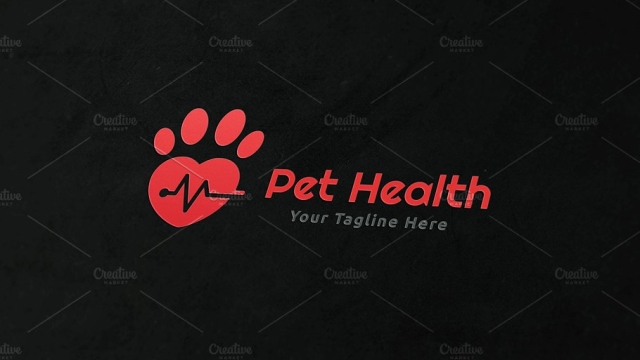
The Ultimate Guide to Keeping Your Pet Healthy: Expert Tips and Advice
Having a pet in your life can bring immense joy and companionship. Whether you have a lovable Labrador, a feisty feline, or even a chirpy budgie, ensuring their health and well-being is of utmost importance. As pet owners, it is our responsibility to provide them with the care they need to live a happy and fulfilling life. From regular vet check-ups to a nutritious diet and active lifestyle, there are several key factors that contribute to keeping your furry or feathered friend in top shape. In this ultimate guide to pet health, we will delve into expert tips and advice that can help you provide the best possible care for your beloved companion. So, let’s embark on this journey together, learning how to keep your pet healthy and thriving in every way imaginable.
Nutrition and Diet
Proper nutrition is essential for maintaining your pet’s overall health and wellbeing. Just like humans, pets require a balanced and nutritious diet to thrive. Providing them with the right food can help prevent various health issues and ensure their longevity. Here are some expert tips and advice to help you make informed decisions about your pet’s nutrition.

Choose high-quality pet food: When selecting food for your furry friend, opt for high-quality pet food that contains a balanced combination of proteins, carbohydrates, healthy fats, vitamins, and minerals. Look for brands that use real meat as the primary ingredient and avoid ones that contain artificial additives or fillers.
Consider their age and lifestyle: Different pets have different nutritional needs depending on their age and activity levels. For example, puppies and kittens require food that supports their growth and development, while older pets may benefit from specialized diets that cater to their aging bodies. Consult with your veterinarian to determine the best diet for your pet’s specific needs.
Practice portion control: It’s important to feed your pet the right amount of food to prevent overeating, obesity, and related health problems. Follow the feeding guidelines provided by the pet food manufacturer, but keep in mind that these are just generalized recommendations. Monitor your pet’s weight and adjust the portion sizes accordingly to maintain a healthy body condition.
Cat Scratch Pole
Remember, nutrition is a key factor in keeping your pet healthy. By providing them with a well-balanced diet tailored to their individual needs, you can contribute to their overall wellbeing for years to come.
Exercise and Physical Activity
Regular exercise and physical activity are vital for maintaining good pet health. Just like humans, pets benefit greatly from staying active and engaging in various forms of physical exercise. Not only does exercise help to keep their bodies fit and strong, but it also supports their overall well-being and mental health. Incorporating a variety of activities into their daily routine is key to ensuring that your furry friend leads a healthy and happy life.
One of the simplest and most effective ways to promote physical activity in pets is through daily walks or jogs. Taking your dog out for regular walks not only provides them with an opportunity to burn off excess energy, but it also helps to strengthen their muscles and maintain a healthy weight. Remember to adjust the duration and intensity of the walks according to your pet’s age, breed, and overall health condition.
In addition to walks, engaging in interactive play sessions with your pet is another excellent way to keep them active. Whether it’s throwing a ball, playing with toys, or engaging in a game of chase, interactive play not only provides physical stimulation but also mental stimulation. This helps to prevent boredom and promotes a healthy bond between you and your pet.
Lastly, consider enrolling your pet in specific exercise programs or activities that cater to their breed or unique needs. Some pets may enjoy agility training, obedience classes, or even swimming sessions. These activities not only keep them physically active but also provide mental stimulation and improve their coordination and discipline.
Remember, always consult with your veterinarian before starting any new exercise routine for your pet, especially if they have any underlying health conditions. By incorporating regular exercise and physical activity into your pet’s routine, you are taking a proactive step towards keeping them healthy, fit, and happy.
Preventive Care
Maintaining the overall health of your pets is crucial to ensuring their happiness and longevity. By implementing a proactive approach to their well-being, you can prevent potential health issues before they arise. Regular veterinary check-ups, balanced nutrition, and consistent exercise are key factors in providing the best preventive care for your beloved pets.
First and foremost, scheduling routine veterinary check-ups is essential. These visits allow professionals to assess your pet’s overall health, spot any early signs of illness, and provide necessary vaccinations. By staying up to date with vaccinations, you can protect your pet from a variety of diseases and ensure their immune system remains strong.
In addition to regular vet visits, providing a well-balanced diet is vital for your pet’s health. A diet tailored to their specific needs, including appropriate portion sizes, is essential in preventing obesity and related health problems. Consulting your veterinarian regarding the best diet for your pet’s age, breed, and any specific health conditions can help ensure they receive the necessary nutrients to thrive.
Finally, incorporating regular exercise into your pet’s daily routine is crucial. Physical activity not only helps maintain a healthy weight, but it also promotes good cardiovascular health and mental stimulation. Engage in activities that are suitable for your pet’s species and breed, such as walks, playtime, or interactive toys. Exercise not only benefits their physical well-being but also strengthens the bond between you and your furry friend.
By making preventive care a priority, you can play an active role in safeguarding your pet’s health and well-being. Regular vet check-ups, a nutritious diet, and consistent exercise are key elements in ensuring your pet lives a long, healthy, and happy life.




